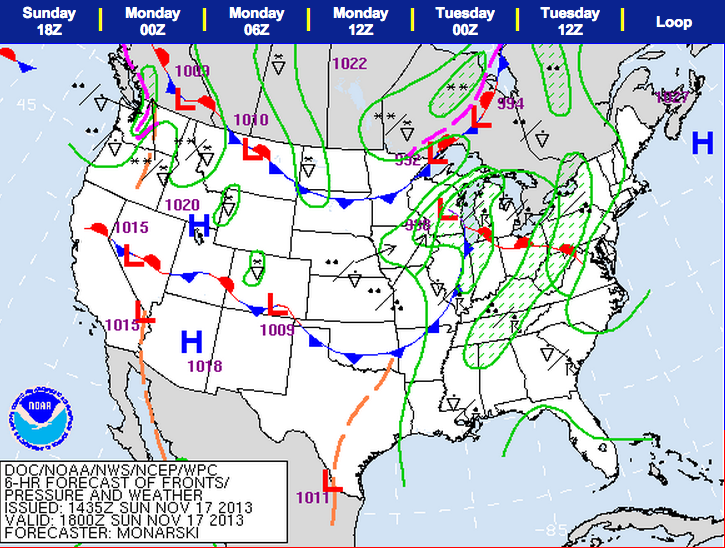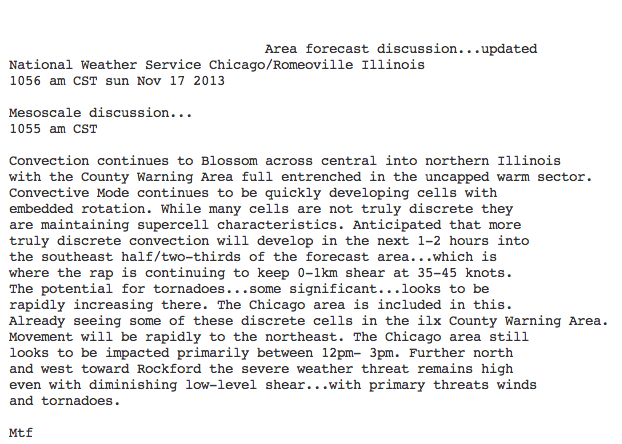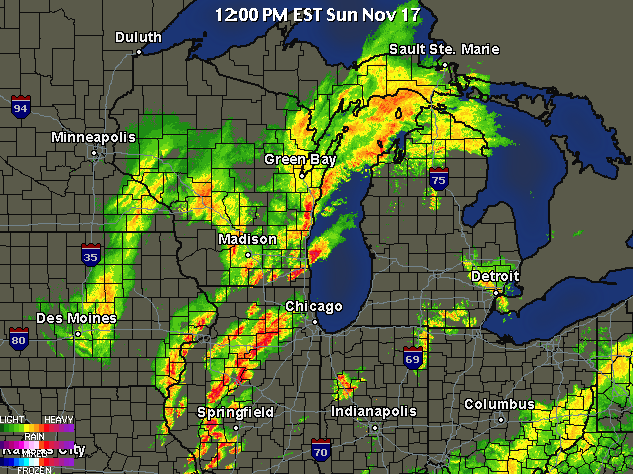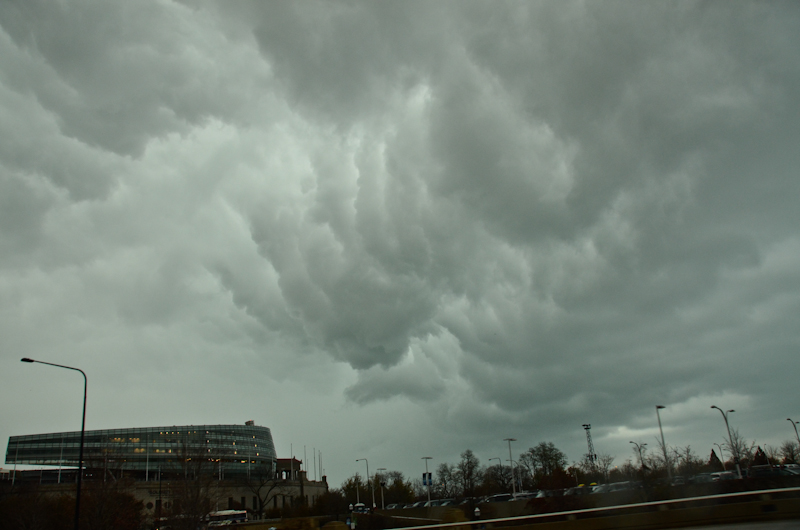This morning dawned windy and warm — apparently perfect paddling weather as long as you didn’t look beyond your window. Which, of course, we did. In fact, we knew a dangerous storm system was coming the night before and had already chosen not to paddle on Lake Michigan.
At 8 a.m. it was obvious that we’d be having serious, dangerous storms moving through. By 11 a.m., the warnings were dire:
Or to put it in graphical form:
Meanwhile, at Soldier Field, preparations for the football game between the Chicago Bears and the Baltimore Ravens continued. The stadium was packed with 63,000 fans and the game was in the first quarter when the inevitable storm struck. At that point, the game was “temporarily suspended” and everyone was evacuated from the stands because of severe weather.
The NFL claimed surprise that such a drastic step was necessary. USA TODAY Sports quoted NFL spokesman Michael Signora stating, “Weather is unpredictable and there was a chance that the game could proceed without a delay.” Really?
No revenue was lost, certainly. In fact, as a friend of ours attending the game noticed, more beer was likely sold because of the evacuation.
We watched the glowering sky above the stadium and listened to the reports on the radio about the devastation caused in Washington, Illinois, about 150 miles southwest of the city. (There’s already a Facebook page for the town’s recovery.)
We thought about this event in the context of the risk assessment we do every time we paddle. We try not to be influenced by external factors, such as the time we invested getting to the water, the disappointment of our fellow paddlers, or the money we might lose if we cancelled a class. It’s not always easy, and we don’t always do an impeccable job, but that’s what we strive for.
The game eventually resumed, and as far as we know, nobody got hurt. Just as in paddlesports and all kinds of other pursuits, it appears they got away with a poor risk assessment. But you have to ask whether it was a risk worth taking.













It always amazes me (maybe it shouldn’t) how many people speak of being “surprised” by a storm that “came out of nowhere” when, actually, the signs were obvious or (as in this case) the risk was discussed for days.
There is risk assessment and there is risk ignorance — by that I mean people who know, or should know, the risk and ignore them. Recently, I tried to persuade a couple of kayakers not to go on the Illinois River. The water is cold. The wind was 20 mph and forecast to increase. They had 11-foot WS Pungos — no bow bulkhead or flotation. They were not dressed for immersion. They promised to be careful and re-evaluate before launching. So what happened? One of their PFDs was lost en route when it blew out of the pickup truck bed and they STILL went kayaking. They were focused on their geo-caching goals for the day, not focused on risk. They made it back OK, but that doesn’t mean they made the right decision.